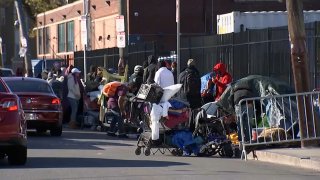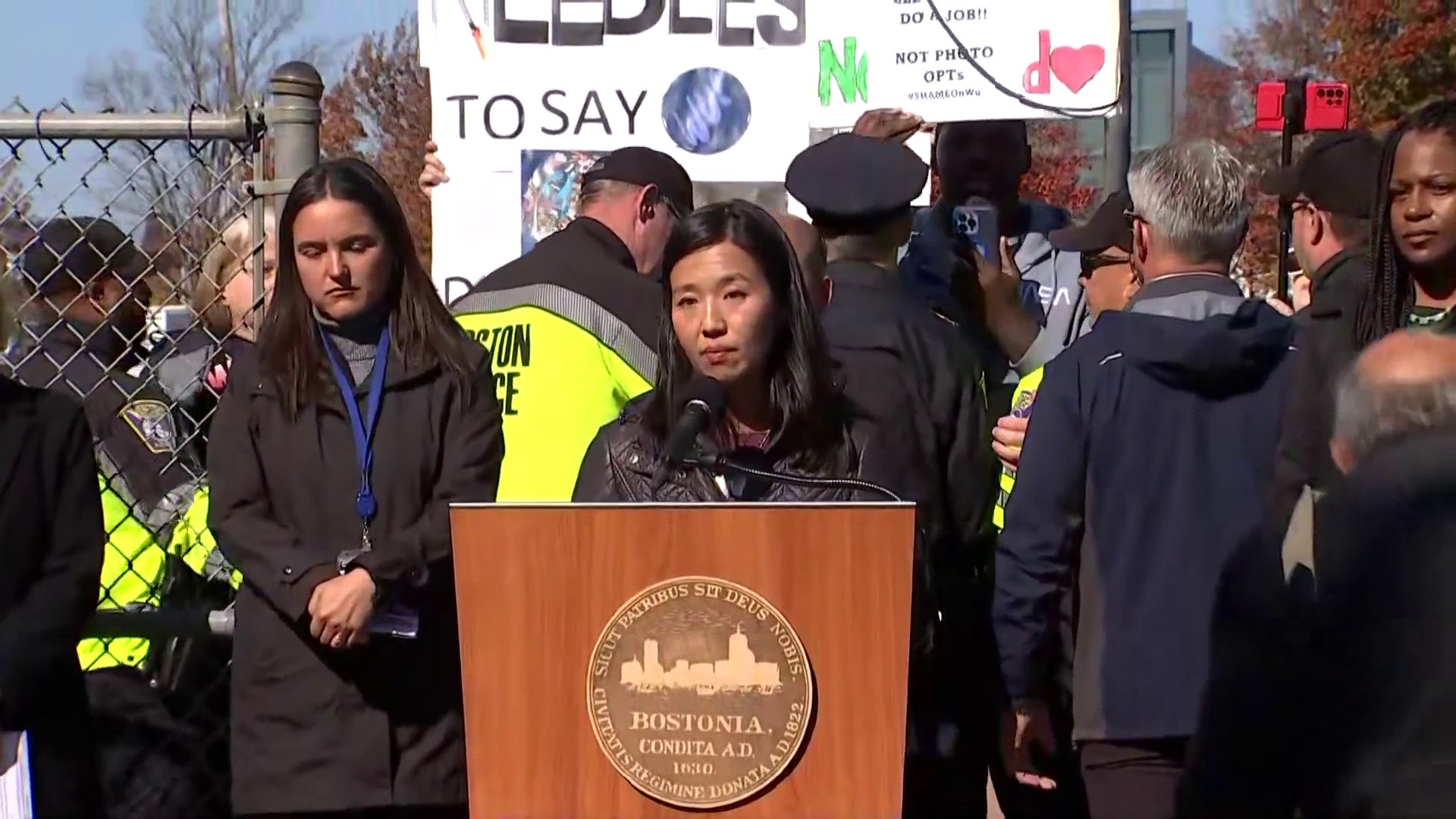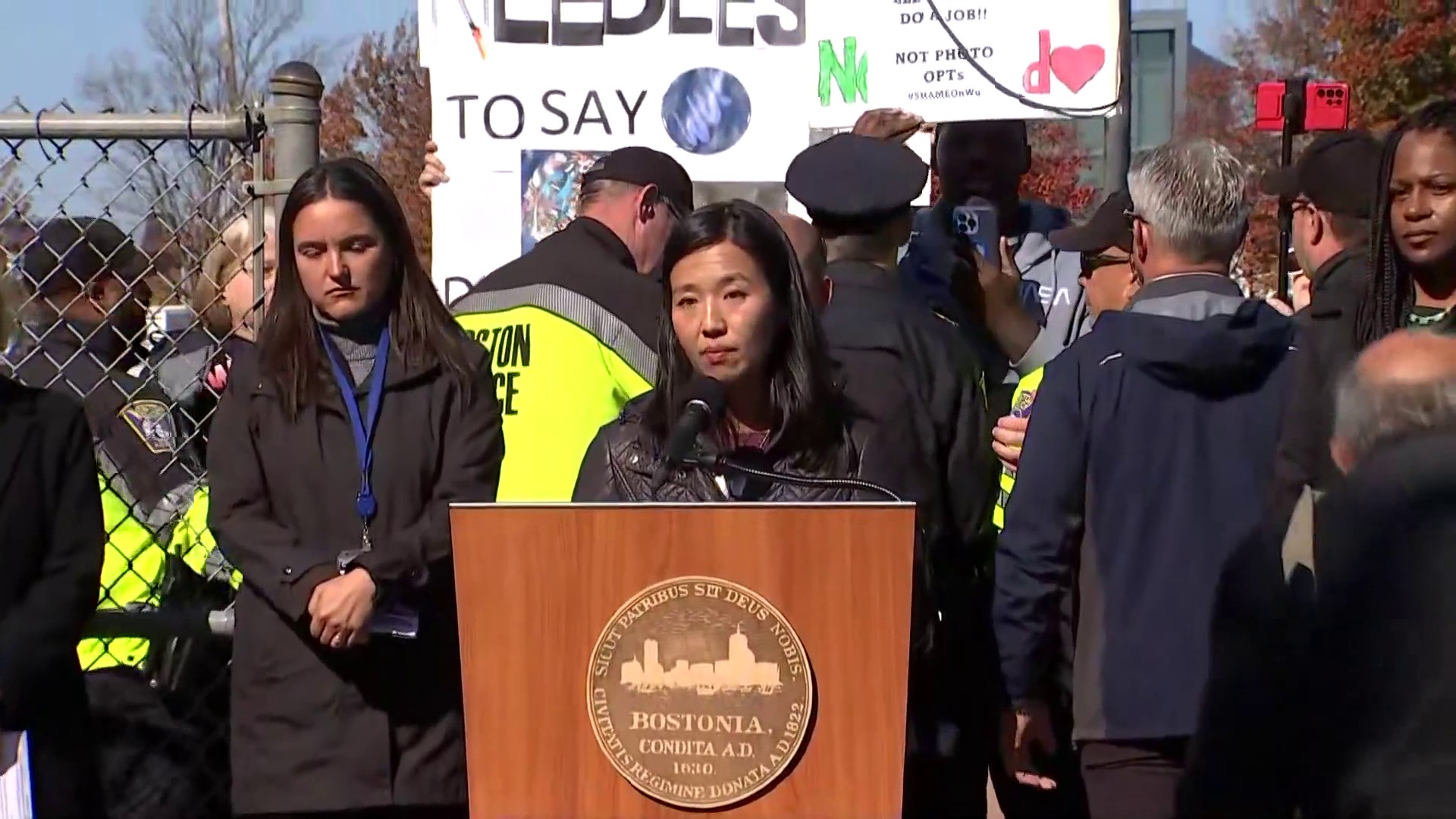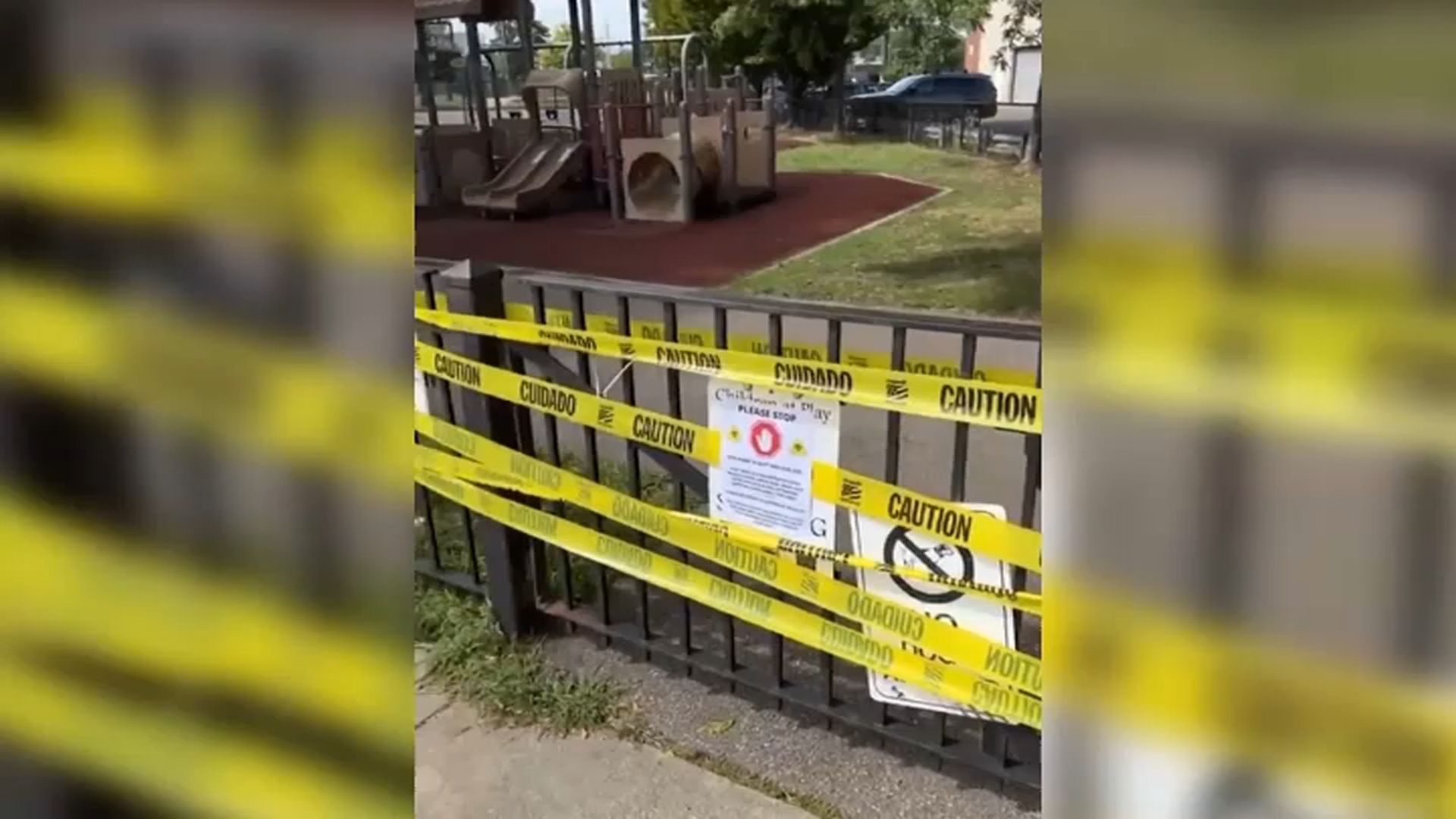
About half of the people camped in a stretch of Boston known as "Mass. and Cass" most recently resided in another city or town, underlining the regional nature of the addiction and homelessness crises straining the area, Mayor Michelle Wu said Monday.
While her administration continues to grapple with how to manage encampments in the area of Massachusetts Avenue and Melnea Cass Boulevard and how to help residents get access to the services they need, Wu pledged the city will not turn its back on those in need. But the path forward, she said, relies on getting Beacon Hill to take on a more active role.
WATCH ANYTIME FOR FREE
Stream NBC10 Boston news for free, 24/7, wherever you are. |
Wu told WBUR's "Radio Boston" that despite Boston's best efforts -- which included standing up about 200 units of "wraparound" housing with 24/7 access to medical services -- the city will not be able to manage a "constant flow of people into the area" on its own.
"We really need the state to step up. We've done the calculations. We know that this works for individuals. The city of Boston, as an individual municipality with the funding we have, is not able to serve the tremendous amount of need that continues growing," Wu said. "If the state were to create 1,000 new, similar low-threshold supportive housing units outside the city of Boston, we believe that is what would be really transformational in solving this entire issue."
Get updates on what's happening in Boston to your inbox. Sign up for our News Headlines newsletter.
One year ago, there were about 90 tents erected near Mass. and Cass, some of which were "deeply fortified, entrenched structures" featuring wood palettes and propane tanks, Wu said Monday. The city in January, only a few months into Wu's term, worked to clear the area of encampments.
Wu said in recent weeks there have been about 20 tents "that come up and down every other day." She did not provide a specific estimate Monday, but GBH News reported last week that Wu said 173 unhoused people reside in the area.
About 400 people are connected to supportive housing services "in one way or another," Wu said, and 72 have moved from transitional to permanent housing.
City outreach workers surveyed homeless residents in the encampments, asking their most recent ZIP codes before they landed at Mass. and Cass or where they went to high school. In the most recent batch, 47% of respondents said their last ZIP code was in a city or town outside Boston, Wu said. She added that one-third said they attended a high school in Boston, though the share of those who actually named a specific school in the city was "much lower."
"There are lots of people who are coming in from all across the state and even New England, outside Massachusetts," Wu said. "Boston is a center city. We are never going to say we're putting up walls and shutting our compassion down and our ability to serve down. We are always going to be that hub, but we need the resources and the partnership from the state to actually do it right and get at the root causes here."
Last week, officials again undertook another sweep of Mass. and Cass in an attempt to move the "center of gravity" from Southampton Street -- a major roadway that Wu said created the risk of "something very bad waiting to happen with the amount of vehicular traffic" -- to Atkinson Street, closer to an engagement center and other services.
Wu said state officials should not be scared away by her request for standing up 1,000 supportive housing units outside city limits, pointing to Boston's success in creating about 200 such units as proof that the goal is realistic.
"The number seems very large and it feels very daunting when we're talking about this," she said. "But to just remind folks, the reason why we are talking about this and putting forward this number with such specificity is in the city of Boston, we were able to go from zero units to 200 units in a matter of just a few months."
A Baker administration spokesperson said the executive branch has steered about $40 million toward responding to the crisis since last year, including more than $15 million to develop three different transitional housing and shelter programs near Mass. and Cass that so far have helped more than 180 people.
More on Mass. and Cass
Baker also included $20 million in his fiscal year 2022 closeout budget, which remains on ice in the Legislature, to stand up additional low-threshold housing for people with substance use disorders facing homelessness.
"The Baker-Polito Administration has been and continues to work closely with the City of Boston to identify strategies for the challenges faced along the Massachusetts Avenue corridor, and to support the City's response to the issues at Mass & Cass, and has invested nearly $40 million in these efforts," Executive Office of Health and Human Services spokesperson Olivia James said in a statement. "The Executive Office of Health and Human Services and its Departments of Public Health and Mental Health are actively engaged with the City to implement strategies and supports for individuals in the area, and have funded services directly with private, non-profit providers or through the City."
Much of the work Wu hopes Beacon Hill will tackle will likely occur under a new governor, with Baker set to leave office in just a bit more than two months.
A spokesperson for Democratic gubernatorial nominee Maura Healey did not immediately provide comment Monday. The Democrat nominee, herself a Boston resident, told the Boston Globe's editorial board that she believes more housing will be needed to get Mass. and Cass residents into recovery but added "it's just not true" that other cities and towns are not doing enough to address the situation.
"You do a census, the majority of the people down there, they are still from Boston and Greater Boston," Healey told the Globe. "I know that was talked about and trust me, I support programs in regions. No community is immune [from addiction problems]. But I don't think it's the case that other cities and towns aren't doing enough."
Wu, who has backed Healey in the contest for governor, said she has spoken with the Democratic nominee "about Mass. and Cass again and again and again." She noted that Healey has focused on the opioid epidemic as attorney general, including with several major lawsuits against prescription drug manufacturers.
Republican gubernatorial candidate Geoff Diehl, a former state representative from Whitman, on Monday called Wu's request for state action an attempt "to distract and deflect attention away from ongoing failures at Mass. and Cass" and pointed to the Boston City Council's recent vote to award itself and Wu 20% raises -- a measure Wu vetoed last week.
"In recent months, the City has received half-a-billion dollars in ARPA funding, some of which could be used to created wraparound housing if needed for those residents," Diehl said in a statement to the News Service. "But, the City Council apparently thinks it's a bigger priority to vote itself a 20% pay raise. There could indeed be a place for state-local partnerships to solve the problems at Mass. and Cass, but before looking to the state for even more money to solve its problems, Boston should start by realigning its priorities to better address the needs of its own residents."
Wu originally proposed increasing salaries for the city council and mayor by about 11% after the next election, according to WCVB Boston. Asked about her veto, Wu on Monday told WBUR she was concerned nearly doubling the raise she sought would send the wrong message to other city workers while negotiations continue on more than a dozen collective bargaining agreements.
"We have 13 contracts left to go out of all of the ones that were open when we came in. The vast majority of the contracts so far have been settled on a wage pattern that's been on average about 2% a year of increases," Wu said. "I know it's been a chunk of time since the City Council has had a wage increase given the way the structure is different from regular negotiations, but it is important, I believe, when we're serving in these roles, when we are public officials and public servants, to ensure we are doing whatever we can to put our frontline workers, to put our city workers who are among the lowest-paid staff of our municipal workforce, to put them first in how we're thinking about where those increases go."




